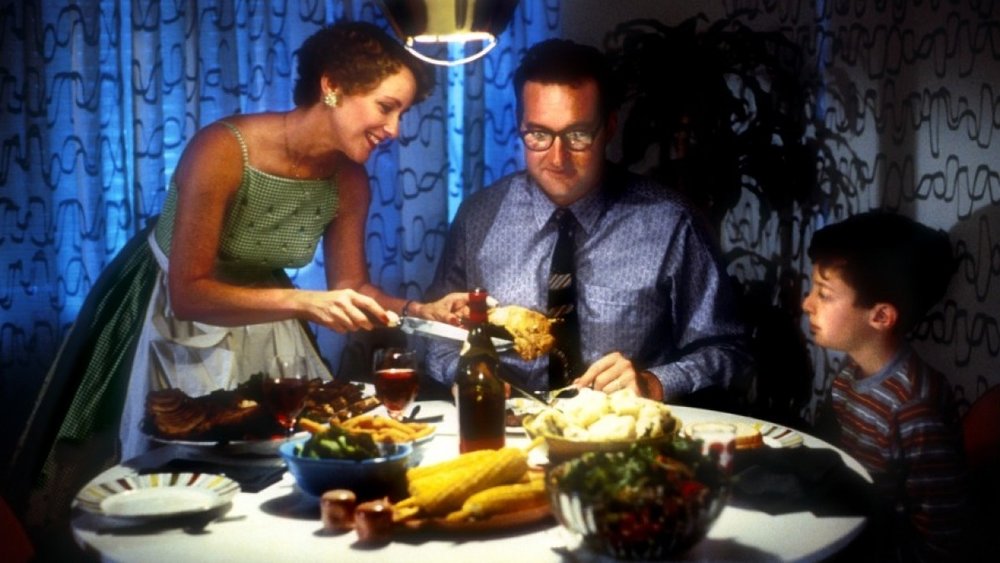Bob Balaban doesn’t seem like someone who would be responsible for a film like the aptly named Parents (1989). Based on his roles in Seinfeld (1989-98), Close Encounters Of The Third Kind (1977) and Gosford Park (2001); one would very likely assume that Bob Balaban was just your average “Joe”. But there is nothing average about Parents. From a production standpoint, Balaban is able to manufacture a remarkable ambience with a small budget, comparable to his contemporaries Joe Dante, Wes Craven and Abel Ferrara. And, like many of the best and most personal “B-movies”, Balaban is able to mix and fuse together seemingly disparate genres into one coherrant narrative.

Parents starts off as what appears to be a satire of Leave It To Beaver suburban America ala Blue Velvet (1986). However, that plastic sheen and psychological distance very quickly gives way to a frightening morbidity that is born out of the audience’s affinity for the film’s child protagonist Michael (Bryan Madorsky). As Michael’s parents, Nick (Randy Quaid) and Lily (Mary Beth Hurt), begin to exhibit odd and threatening behavior Balaban consistently gives the viewer POV shots from Michael’s perspective.
Add to that a dream sequence where Michael is drowning in blood within a void (shades of Zebra In The Kitchen) and the recurring flashbacks to when Michael caught his parents having intercourse (with a bizarre amount of red smeared on their faces and torsos that could either be blood or lipstick) and there is little doubt that Parents is about Michael and his experiences as he sees them. These two scenes of the fantastique that I have singled out also speak to the broader theme of the film: the cavalier way that adults, often unintentionally, traumatize children. Focusing on this theme is why Balaban’s treatment of the material, a story about cannibal parents, allows for a transcendance whose cinematic experience becomes one of second guessing and ambiguity.
Parents has a run time of 81 minutes and for the first hour of that run time Balaban keeps his audience at a distance. For every moment we are treated to a spectacle of horror we are given a moment of the mundane that teases the potential for the horrific (be it sexually, physically, or psychologically). Then, in the last twenty or so minutes of the film, Balaban goes all out and embraces the horror of cannibalism. This abrupt shift in aesthetic strategies is one of the most brilliant features of Parents. The audience is so uncertain how things will come to a head that when they suddenly do, and with a substantial amount of violence to boot, the experience takes on a visceral quality.
Parents belongs with The 5,000 Fingers Of Dr. T (1953), The Red Balloon (1956), Cria Cuervos (1976), and The Tin Drum (1979) as one of the best films about childhood made in the last century. Each of these films twists genre, surprises, and functions with a logic unique to children.
